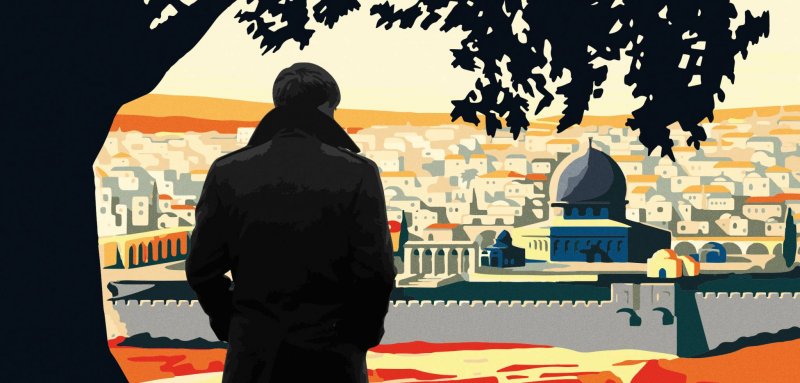For the past few days, I followed with great interest the James Bond like escape of Carlos Ghosn from Japan, and his subsequent resurfacing in his readopted home country: Lebanon. One particular news item that emerged from the escapade was his 2008 visit to Israel, as a French citizen, and under his tenure as CEO of Renault. Although the public visit was made 12 years ago and did not cause any controversy then, last week, three Lebanese lawyers filed charges against Ghosn for breaching a Lebanese law that prevents citizens from visiting Israel and engaging with the enemy, the penalty for the crime range from 3 to 10 years of penal labour.
What followed was the usual media brouhaha with divided opinions on the matter. Questions were asked and opinions shared…Is he a traitor? Does it matter if he visited Israel using his French passport? Why raise the matter now? However, most Lebanese news anchors, politicians, talk show hosts and a large segment of the general public were united in outcry over Ghosn’s normalization visit to Occupied Palestine, clearly articulating the official line that Israel, the rogue nation does not exist.
Irrespective of the above, and from my personal perspective as a Palestinian, like Ghosn I hold three different passports including a Lebanese passport, what is the issue with us visiting Palestine, the Occupied Territories, Israel, or whatever you want to call that land?
As a Palestinian holding three nationalities including Lebanon’s, it is high time to decriminalise visits to Israel occupied lands. The purpose of this travel ban has long been obsolete, and the travel ban only supports Israel’s occupation.
It is high time to put an end to this charade and reverse Lebanon’s law on visiting Israel occupied lands. If one visits, it is to show solidarity against the injustices, maintain our connection with the homeland, and assist where possible.
Bans against travel to Israel were meant to weaken the occupier and allow the Arabs to beat them economically. Fifty years on, it is clear the travel bans only serve Israel’s interests and strengthen its hold on every inch of Palestinian land.
From an early age as a Palestinian, I always wondered and questioned why my parents and I never visited our country and ancestral land. The question of illegality never came up but it was more the lack of desire to face our enemy. How is it then that many of my extended family live with and face said enemy on a daily basis?
How come I never have a plausible answer when they repeatedly invite me to come visit them in Palestine (both sides of the 1967 divide)? How come now, and as 52-year-old adult I don’t just book a ticket to fly there or cross the Allenby Bridge from Jordan? Why not go and visit our land, homes and family? Why is it not a big deal for Israelis to visit Arab countries be it on their Israeli passports or second passports?
It is high time to put an end to this charade and reverse Lebanon’s law on visiting Israel occupied lands. If one visits, it is to show solidarity against the injustices, maintain our connection with the homeland, and assist where possible. Many pro-Palestine peace activities from all around the world visit and are a thorn in the side of Israel. Many individuals such as Rachel Corrie, Thomas Hurndall, the nine heroes on the Gaza Freedom Flotilla and many others paid with their lives to highlight the plight of Palestinians.
Why are we denied the right to look into our enemy’s eyes and tell them we are here and we are going nowhere but back to our homeland?
Why are we denied, as Muslims and Christians, to visit our holliest sites in Jerusalem? Why was there an outcry when the Maronite Patriarch Bechara Boutros al-Rahi, a Lebanese, visited the Holy Land in 2014 whilst accompanying Pope Francis on parts of a three-day Holy Land pilgrimage? Why doesn’t the Grand Mufti of Lebanon visit Jerusalem and its sacred sites?
Are we also forgetting the hundreds of thousands of Palestinians, first, second and third generations, that make it a point of visiting the homeland from various parts of the Diaspora? Surely, they are better placed to gauge whether such visits are controversial or inflammatory. The Palestinians would surely welcome their Arab brothers whilst accepting their long-time faith of being abandoned by various Arab regimes.
Lebanon’s politicians, legislators and public needs to differentiate between visiting and colluding. Until Palestinians are liberated, we, Arabic speaker of all nationalities should not cut our umbilical cord to our homeland nor be denied the need to connect with our roots. It is high time that this subject is looked at in a different light, to empower everyone to visit Palestine and vocally claim back our identity and land.
*The views and opinions expressed in this article are those of the author and do not necessarily reflect Raseef22
Raseef22 is a not for profit entity. Our focus is on quality journalism. Every contribution to the NasRaseef membership goes directly towards journalism production. We stand independent, not accepting corporate sponsorships, sponsored content or political funding.
Support our mission to keep Raseef22 available to all readers by clicking here!
Interested in writing with us? Check our pitch process here!





